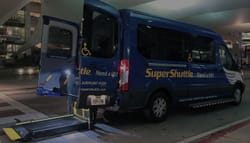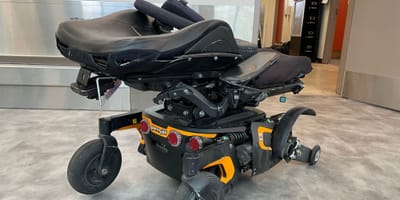Lithium-ion batteries are being used in an increasing number of power wheelchairs, but many travelers report difficulty in getting clearance to fly with them.
Although airline staff may be confused about wheelchair battery types and what’s allowed, a series of regulations have been adopted by the International Air Transport Association (IATA), the Federal Aviation Administration (FAA), and aviation authorities across the world. There is consistency in regulation, and passengers with disabilities should have a consistent experience across carriers.
So, what are the rules concerning Lithium-ion batteries in wheelchairs? These are the facts:
If the wheelchair’s lithium-ion battery is removable…
- The battery must not exceed 300 Wh.
- If the device has two batteries, they must not exceed 160 Wh each.
- The battery or batteries must be removed from the device, carried in the passenger cabin and protected from damage.
- Passengers may carry a maximum of one spare battery not exceeding 300 Wh or two
spare batteriess not exceeding 160 Wh each.
If the wheelchair’s lithium-ion battery cannot be removed…
- There is no limit on the installed battery’s capacity in watt hours.
If an airline gives you difficulty in checking a lithium-powered wheelchair, you may direct them to the following regulatory guidance documents:
- Battery Powered Wheelchair and Mobility Aid Guidance Document (PDF) — IATA
- PackSafe: Wheelchairs and mobility devices with lithium ion batteries, collapsible design, battery removed — FAA
- PackSafe: Wheelchairs and mobility devices with lithium ion batteries, normal design, battery installed — FAA
The FAA distinguishes between wheelchairs with a “collapsible” and “normal design,” due to the fact that there are no collapsible wheelchairs with a battery that cannot be removed by the user. Collapsible wheelchairs feature removable batteries so that spares can be used to extend range.
Have you flown with a lithium-ion powered mobility device?
Which airline did you travel with, and how was your experience?
Let me know in the comments below!















